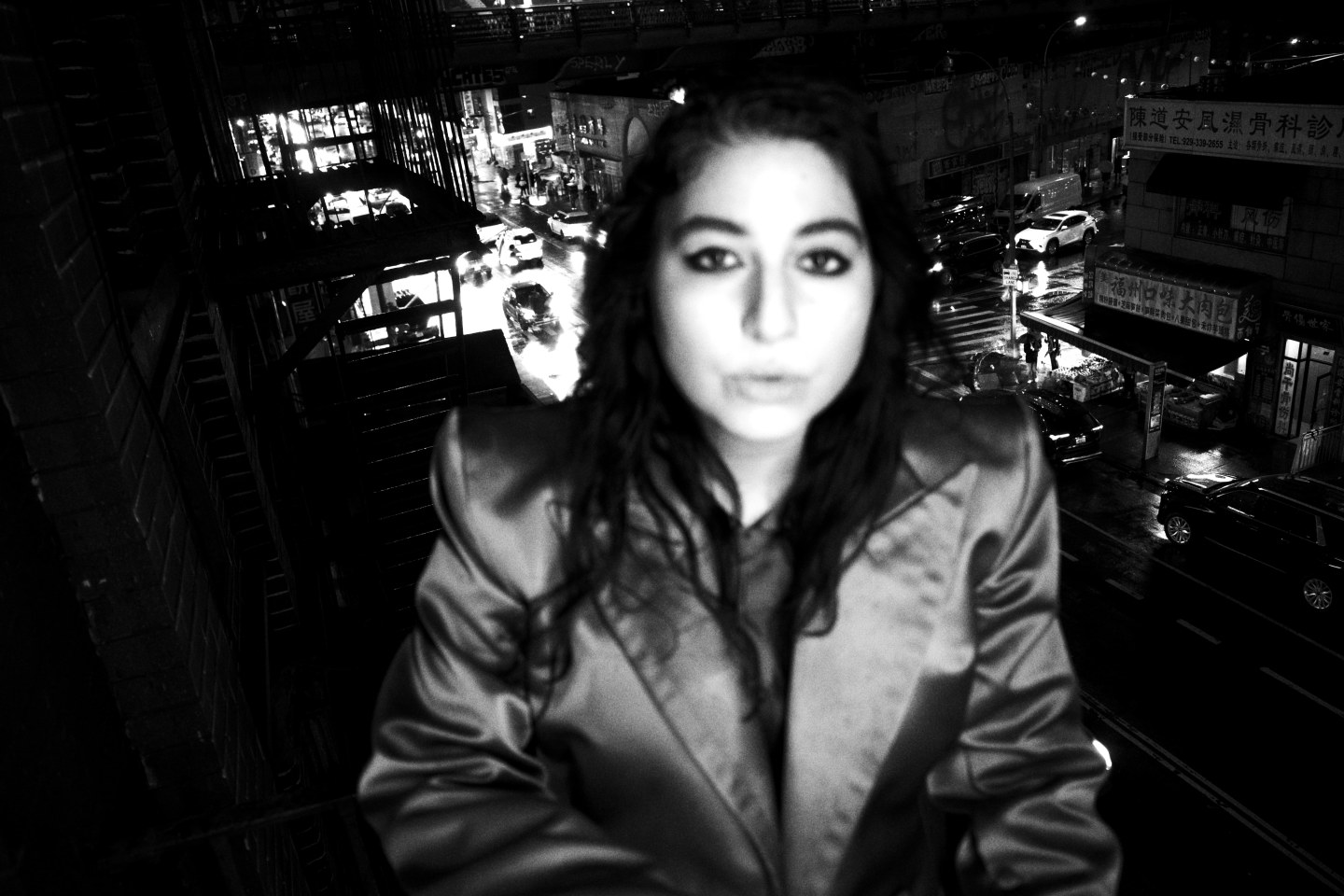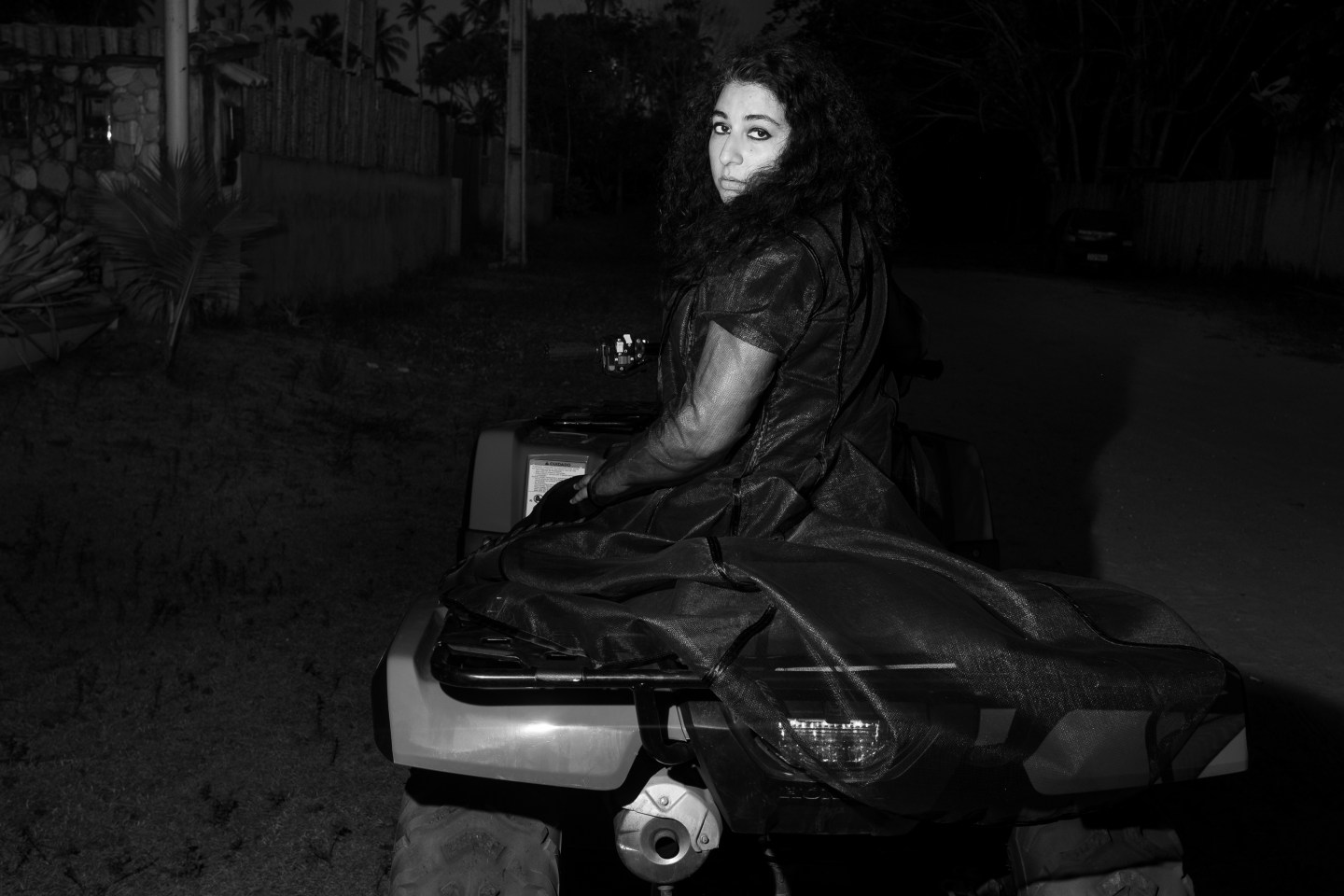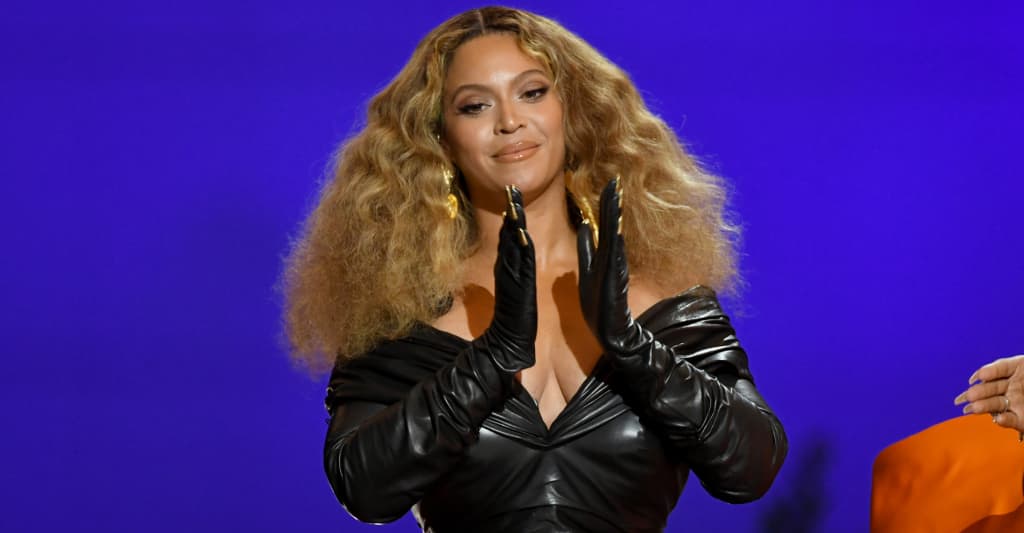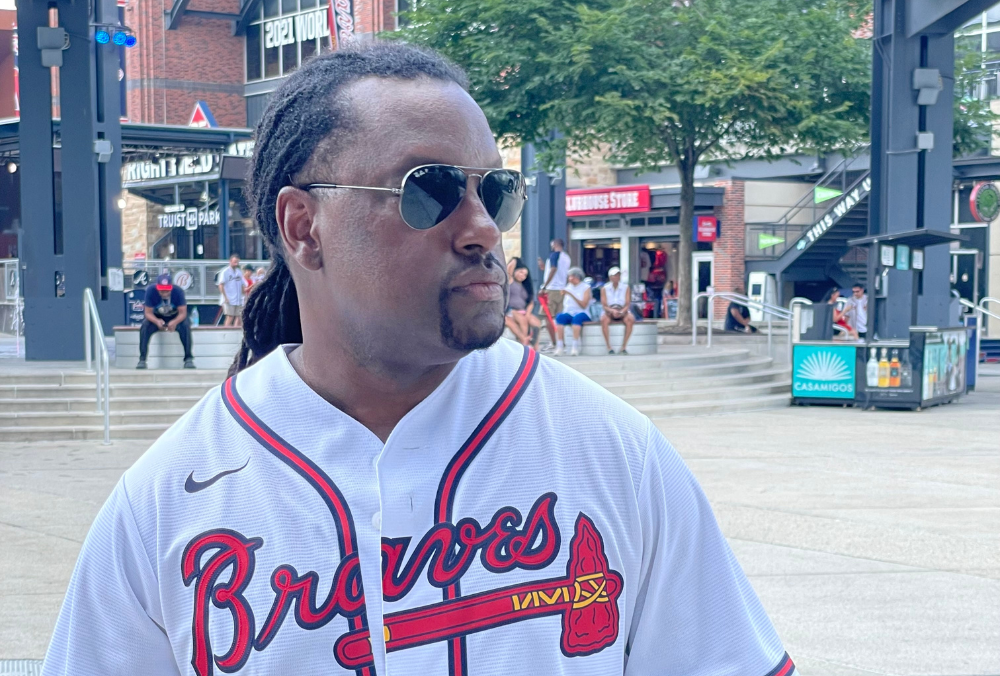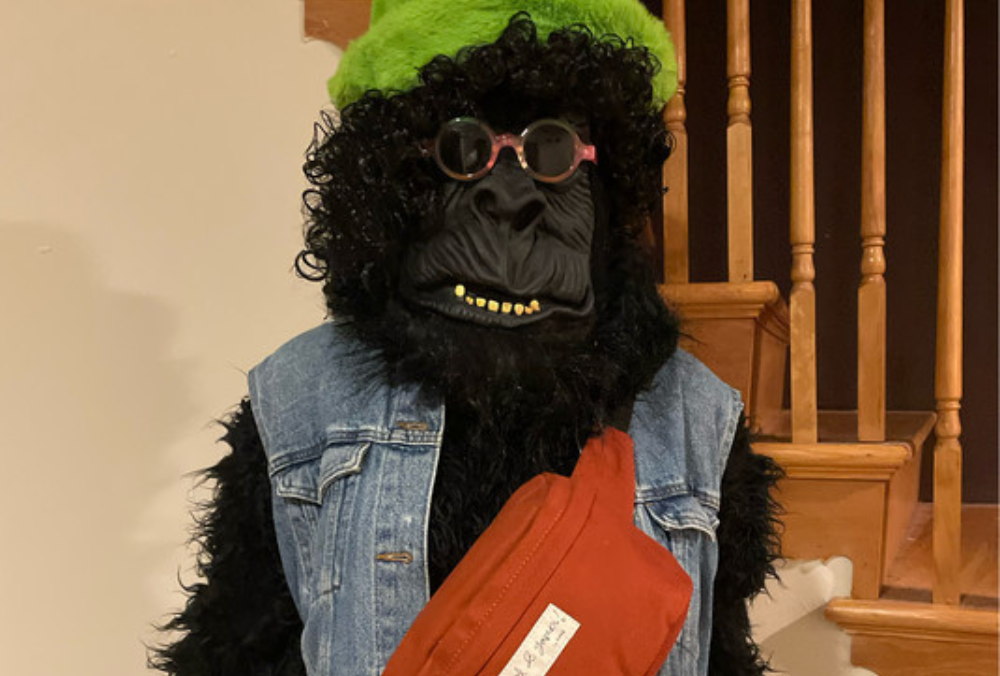Arooj Aftab is a nocturnal creature by preference. It’s a sunny Sunday afternoon — Aftab is dressed in black and wears dark sunglasses — and we’re sitting outside a café on the BedStuy-Bushwick border, not far from our respective homes. The rumble of the J train overhead and the occasional siren whizzing down Broadway punctuate our discussion of Night Reign, the Pakistani singer’s newest album.
Night Reign is a celebration of the moonlit hours Aftab loves best. Whereas her last solo record, 2022’s Grammy-winning Vulture Prince, was recorded in the wake of her brother’s passing, the new project arose from a happier period, as the pandemic waned, the city reopened, and nighttime returned to its place of primacy over day. Among several novel elements, the addition of flirtatious percussion grounds us most immediately in this dark, exciting world.
Songs such as “Whiskey,” with its silky R&B intro, and “Raat Ki Rani,” with its groovy drumline, push Aftab’s sound in new directions, while tracks like “Na Gul” and “Saaqi,” in which she sets the work of the poet Mah Laqa Bai Chanda to song for the first time, find her diving deeper into the sumptuous territory she knows so well. In addition to her common core of collaborators — harpist Maeve Gilchrist, guitarist Gyan Riley, violinist Darien Donovan Thomas, bassist Petros Klampanis — fresh faces including Kaki King, Cautious Clay, Moor Mother, and Marc Anthony Thompson (Chocolate Genius) add new life to the mix, not to mention a Wurlitzer cameo from Elvis Costello.
Aftab credits her ability to transcend stylistic and social divides partly to her experience as a lifelong outsider. She spent her earliest years as a compound kid, the child of liberal economists in ultraconservative late-’80s Saudi Arabia; moved to Lahore, her parents’ hometown, as a preteen; and attended Boston’s prestigious Berklee College of Music. After graduating, she moved to Brooklyn, where she’s since settled, developing a singular sound across four studio albums and several collaborative works.
“If you move around a lot, you have this nomadic [lack of] attachment to one thing as your sense of self,” she tells me. “Your grounding isn’t very firm, and that sets you free and makes you the type of person a bunch of different groups can relate to.” This mindset sits at the core of Night Reign, a record that moves fluidly between diverse idioms — from Qawwalis to jazz standards to pop and neo soul — refusing to rest in one place too long.
In a recent interview, you called jazz a “deeply resistant music.” When was the first time you experienced it that way?
It’s not a resistant music; it’s a resistance music. It’s of the resistance. It’s what Black people played during the Civil Rights movement and before. It’s what brought them together. It’s a protest music. It was called jazz, but I started to understand what it was. Like, you can say I studied jazz theory at Berklee, but what does that actually mean? I studied the theory, but that’s the only thing I studied. It’s at the core of all my music writing, but then what is it about? Who are these people? What did they do? Why did this happen?
I started to learn why it has such a collaborative, improvisational spirit, why it has a spirit at all. It’s also extremely soulful and super modal. It has a kinship with South Asian classical music, and the resistance of Black Americans inspired all the other resistances that we’ve ever had. It has inspired freedom. The concept of freedom comes from jazz.
When I say it’s a resistance music, that’s such a small thing compared to what I mean about the people in this idiom, like Miles and Billie. It’s massive. It deserves a lot of respect, and people should know the history and honor it. It’s important for me to know it in my bones because I’m a part of the jazz scene, and I need to know what that means so I don’t appropriate or enter some place without it being right.
“Urdu is very metaphoric, so you have to say very little to say a lot.”
Do you feel a connection to what some people are calling the “spiritual jazz renaissance”?
South Asian music was never really talked about in a contemporary modern way until very recently, and I think I had a role in that cultural moment when Vulture Prince came out. That’s really important to note: Nobody would’ve known how to talk about this or understand it or digest it [three years ago], because it was very otherized. It was like, “Oh, Coltrane is kind of influenced by this,” or whatever.
You have to teach a musical community what they’re listening to for them to realize that it’s part of a larger conversation. But you can’t just teach that; you have to also give them a thing. You have to give them a body of work to reference, and that’s what Vulture Prince did. I’m glad about what’s happening. All this crossover stuff is great, but it’s happening because there was a ceiling that was shattered.
Obviously, there were other artists that laid the foundations for what you’re doing, too. You’ve talked about Nusrat Fateh Ali Kahn and his influence on Jeff Buckley. There’s also, from the Hindu tradition, Ravi Shankar, who broke ground with his work with the Beatles and George Harrison. What did you learn from the artists who crossed those cultural divides in the past?
A lot. Those were the first building blocks of a real, organic blend of music that’s not just fusion, not just tablas with saxophone on top. My thing has been, “What’s next? Where’s the sound going from here?” We share a lot of emotional language; how can people who play different genres come together and speak the same language a bit less crazily, in a way that isn’t like, “These things are so starkly different, but let’s put them together on the same recording.” Where’s the blending?
I respect everything these guys did. If they hadn’t done that, we would be at square one right now. What Ravi Shankar did to British pop music, how they became obsessed with South Asian classical music through him, was huge. And Nusrat was scratching the surface just before he died. That was about to be epic. He’s a powerhouse qawwali singer, and he was signing every contract that was put in front of him. Besides the Jeff Buckley thing, he would sign everything without even talking to his lawyers. He was on so many different things, and then he fucking died when he was starting something that was about to be really cool.
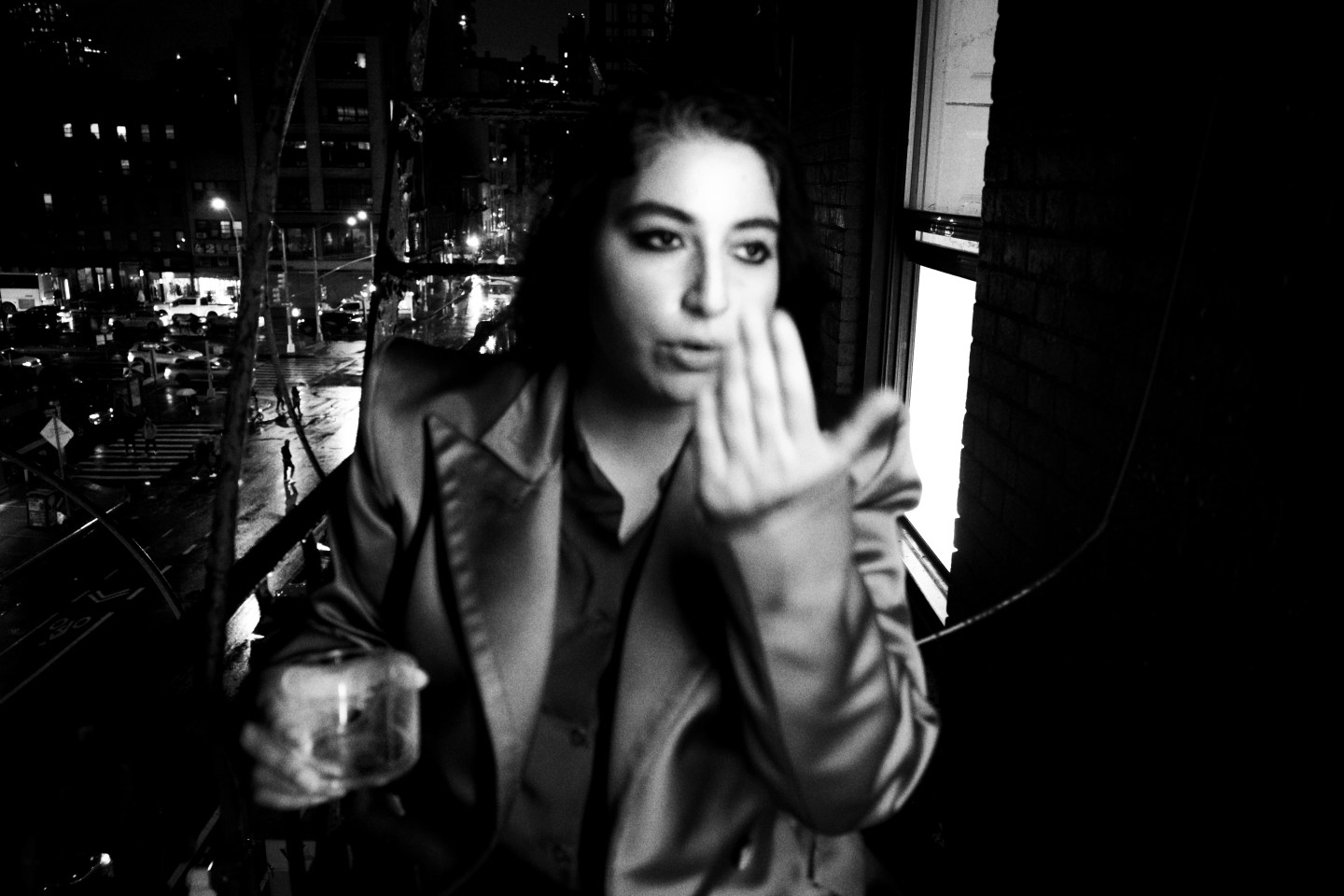
Photo by Shreya Dev Dube.
“Last Night” is a bridge between Vulture Prince and Night Reign. It stands out as the most upbeat track on Vulture Prince, where it’s arranged as a reggae song. Why did you decide to reprise that one here, with a totally different arrangement?
We toured Vulture Prince for two years. We did more than 200 shows. We never played “Last Night” in that reggae style because you need a drum kit for that. But Petros [Klampanis] came up with that bassline [from the Night Reign version], and for the rest of the tour, we played it like that. I was like, “We need to record this. I can’t just let it fly into the ether.”
It’s similar to how Bird Underwater and Vulture Prince have two different versions of “Baghon Main.” I think I’ll keep doing that: migrating a new version of one of the songs on the previous album to the next one so they’re linked.
What’s your connection with the Rumi poem that song is based on?
I love that poem. It’s really short and really deep. A lot of my lyrics are like three phrases that repeat. Urdu is very metaphoric, so you have to say very little to say a lot. It works well for me because I don’t want to tell a story. It’s not a country song.
[The Rumi poem] is originally in Farsi, but Farsi and Urdu have a kinship. Translated, it says so much in just two or three lines, and they’re so beautiful, and repeating them each time gives them more meaning. I use another line from one of his poems in “Whiskey”: “I’m drunk and you’re insane. Tell me how we will get home.” I would never say that to anyone, but Rumi did.
The moon, which figures heavily into “Last Night,” is a classic object of poetic lamentation, but you take a different stance on the moon, and nighttime in general, on this album.
The moon is such a big character of the night, and we’ve talked about the moon so much in poetry and music and film, so I wanted to shift the focus to the major protagonist, the night. The moon is this powerful thing that reflects the light of the day. It ties us into the day. It makes us feel that we’re not ignoring the day. We’re not saying the day is less. The moon is there in the album through “Last Night,” but the night is actually the protagonist in question here. Not me, not my lover, not the moon: the night itself.
As artists, we’re so emotionally connected to our work that it can completely erase us.
Tell me about setting Mah Laqa Bai Chanda’s poetry to music for the first time, and the thread you found between her and Chand Bibi.
It’s a fascinating corner of history that very little is known about. It came to me by chance, through a friend, and I’ve spent seven or eight years going back to it and leaving it, trying to understand what’s happening. At one point, I thought [Mah Laqa Bai Chanda and Chand Bibi] were the same person because their names and roles were similar.
I needed help to understand the poetry. It’s never been set to music and doesn’t have a lot of translations, and it’s in a traditional Urdu that’s out of my grasp of the language — mine is a bit more advanced than colloquial, at best. You can’t just compose somebody’s poems if you don’t have a sense of who they are.
[Mah Laqa Bai Chanda] is the first female from South Asia to publish poetry in Urdu, so I had this nagging sense of connection to her, and connecting her to Chand Bibi — an actual 16th-century queen, and a warrior, and a feminist — helped me exaggerate the story so I could have more to feel and work with.
They’re two centuries apart [(Mah Laqa Bai Chanda was alive in the 18th century)] so they couldn’t have known each other, but their names are the same. Chanda is Chand, which is the moon, and Chand Bibi is literally Moon Lady.
I spent a lot of time with those two poems, “Saaqi” and “Na Gul,” and I had to rearrange some of the lyrics so that they could flow better in song. “Na Gul” feels very royal and stately. I communicated to Maeve that the courts of the Mughal Empire were very extra — silks and jewels and fountains and peacocks — so we needed to do something grand to give it that sense of royalty. It’s in the titles: Night Reign and Vulture Prince. The thread of royalty continues to exist in the work.
Not all the Urdu tracks on the album are based on old poems. “Bolo Na” is a song you started writing in high school but shelved because you thought it was too cheesy. What inspired you to recreate it here?
It felt really important at the time, when I was experiencing this teenage heartbreak and confusion, like, “What do we have? Is it love? Is it real? Can we give it a name?” That’s a very common teenage angst issue, but it’s also a questioning song. It’s like, “Tell me, do you love me or not?”
Now it exists in this iteration with Moor Mother on it as a resistance to the times. We know that the establishments don’t care about us. They’re lying to us. The marketing for every fucking thing, even the American healthcare industry, is like, “We care about you,” but they don’t.
I was happy to change the meaning of this immature love song into something that reflects the time. I was very aware while writing the album that I’m talking about being more joyful, about celebrating of life, about how grief has developed into this thing and how Night Reign is meant to be this kind of sassy, fun iteration of me where I’m talking about whiskey and queens, and at the same time, the world is burning. There’s a war going on. Everybody’s getting fucking murdered. It doesn’t make sense to put this out this way. It feels really tone deaf, and it doesn’t feel honest.
But “Bolo Na” emerged as this song that was able to channel how I felt, which is very betrayed by the systems that we’re made to believe will take care of us. It felt really fitting to put Moor Mother on it because so much of her work is calling out all this nonsense. Her pen is so strong. She can articulate a thing like a knife covered in honey.
Overall, though, this is still an album about finding joy in grief. Did making Vulture Prince and Night Reign help you process the loss of your brother and get to that place?
For sure. It’s been more than three years now, and grief is a crazy thing that has its phases. It’s really complex, and it can be debilitating. There are artists who have experienced such an intense loss that they can no longer pursue their careers. As artists, we’re so emotionally connected to our work that it can completely erase us.
I’m lucky that I was able to inherit [grief] rather than be opposed to it. You can see that in the passing of the years, and the celebration here in Night Reign is because I’m proud I was able to go through that. But I’m still going to go through it. Anyone who has lost someone knows it’s a lifelong process that will keep evolving; its meaning will keep changing. It’s been nice for me to have that honestly and naturally reflected in my work.

